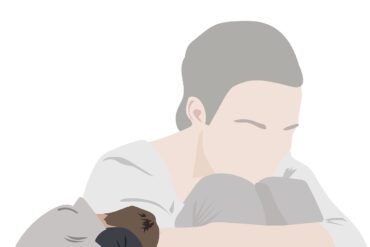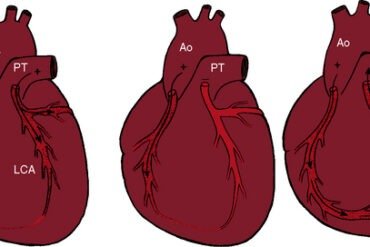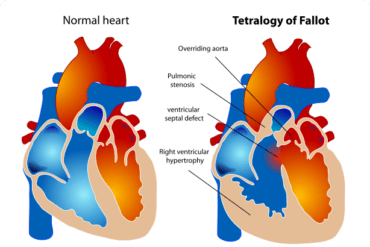Depression Signs and Seeking Help

Table of Contents
- Recognizing Depression Symptoms
- Understanding the Importance of Seeking Help
- Signs of Depression in Adolescents
- Seeking Professional Treatment Options
- Stigma and Support in Mental Health
Recognizing Depression Symptoms
Depression is a widespread mental health condition that affects millions of people around the world. It is important to recognize the symptoms of depression so that proper diagnosis and treatment can be sought. If you or someone you know is experiencing any of the following symptoms on an ongoing basis, it may be an indication of depression:
- Feelings of sadness, emptiness, or hopelessness
- Loss of interest or pleasure in activities once enjoyed
- Changes in appetite (either significant weight loss or gain)
- Difficulty in sleeping (insomnia) or oversleeping
- Fatigue or lack of energy
- Restlessness or irritability
- Feeling guilty, worthless, or helpless
- Trouble concentrating or making decisions
- Recurrent thoughts of death or suicide
- Physical symptoms such as headaches or chronic pain
It is important to note that experiencing a few of these symptoms alone does not necessarily mean you have depression. However, if you have been experiencing several of these symptoms for an extended period of time, it is crucial to seek help from a healthcare professional.
Depression is a highly treatable condition, and seeking help from a mental health provider is the first step towards recovery. Professionals can provide an accurate diagnosis by evaluating your symptoms, medical history, and overall well-being. They can also offer appropriate treatment options, such as therapy, counseling, or medication.
Ignoring the symptoms of depression can have serious consequences, as it can lead to a worsening of the condition and increased distress. Depression can affect all aspects of your life, including relationships, work, and physical health. By recognizing the signs and seeking help early on, you can take control of your mental health and work towards a brighter future.
Remember, you are not alone in this journey. Many resources and support systems are available to help you through your depression. Reach out to loved ones, join support groups, or consider online communities to connect with others who may have similar experiences. Together, you can find the support and strength needed to overcome depression.
If you or someone you know is struggling with depression or having suicidal thoughts, please seek help immediately. Call a helpline or reach out to a mental health professional.
Understanding the Importance of Seeking Help
Depression is a common mental health condition that affects millions of people worldwide. It can lead to feelings of sadness, hopelessness, and a loss of interest in activities once enjoyed. Recognizing the signs of depression is crucial for seeking timely help and support. Many individuals experience a reluctance to seek help due to fears, stigma, or a lack of understanding about their condition. However, seeking help is essential for managing and overcoming depression effectively.
The Consequences of Not Seeking Help
Failure to seek help for depression can have serious consequences on an individual’s mental and physical well-being. Some of the possible outcomes of not seeking help include:
- Prolonged symptoms: Depression symptoms can worsen and persist if left untreated, making it more challenging to overcome the condition.
- Isolation and deterioration of relationships: Depression can lead to withdrawal from social activities and strain relationships with loved ones, resulting in further feelings of isolation and despair.
- Impaired functioning: Depression can significantly affect a person’s ability to fulfill daily tasks and maintain productivity in various areas of life such as work or school.
- Increase in substance abuse: Individuals may turn to alcohol or drugs as a way of self-medicating, leading to dependency and exacerbation of mental health issues.
- Higher risk of self-harm or suicide: Severe untreated depression can increase the risk of self-harm and suicide.
The Benefits of Seeking Help
Seeking help for depression is a crucial step towards finding relief and recovery. Some of the benefits of seeking professional assistance include:
- Accurate diagnosis and treatment plan: Mental health professionals can accurately diagnose depression and develop an individualized treatment plan, which may include therapy, medication, or a combination of both.
- Validation and support: Reaching out for help provides validation for your struggles and offers a supportive environment to discuss your feelings openly.
- Learning coping strategies: Professionals can equip you with effective coping mechanisms and strategies to manage symptoms and prevent future episodes.
- Alleviation of symptoms: Seeking help can lead to a reduction in depressive symptoms, allowing you to regain control over your life and experience improved overall well-being.
- Connection to resources and support networks: Mental health professionals can connect you with additional resources, support groups, or communities that can provide ongoing support and understanding throughout your recovery journey.
Remember, depression is a legitimate medical condition, and seeking help is a sign of strength, courage, and self-care. Don’t hesitate to reach out to a mental health professional or speak to someone you trust. Together, we can overcome depression and foster a healthier and happier life.
Signs of Depression in Adolescents
Depression is a serious mental health condition that can affect people of all ages, including adolescents. It is important to recognize the signs of depression in teenagers as early intervention and support can make a significant difference in their well-being. Here are some common symptoms to look out for:
- Changes in mood: Adolescents with depression may experience persistent sadness, irritability, or anger. They may also have sudden mood swings.
- Loss of interest: A noticeable lack of interest or pleasure in activities that the teenager previously enjoyed can be a sign of depression. They may withdraw from friends, hobbies, or extracurricular activities.
- Difficulty concentrating: Depression can impact a teenager’s ability to think clearly or focus on tasks. They may have trouble remembering things or making decisions.
- Changes in appetite or weight: Significant weight loss or gain, along with changes in appetite, can be indicative of depressive symptoms.
- Fatigue and low energy: Teens with depression may constantly feel tired, lacking energy, and unmotivated. They may struggle with daily activities or have difficulty getting out of bed.
- Sleep disturbances: Insomnia or excessive sleeping are common signs of depression. Teens may find it hard to fall asleep, wake up frequently during the night, or experience oversleeping.
- Feelings of worthlessness or guilt: Adolescents with depression may express feelings of self-blame, low self-esteem, or worthlessness. They may be excessively critical of themselves or believe they are a burden to others.
- Thoughts of self-harm or suicide: Extreme sadness or despair can lead to thoughts of self-harm or suicide. It is crucial to take any mention of self-harm seriously and seek immediate help.
If you notice any of these signs in an adolescent, it is important to take them seriously and seek professional help. Depression is a treatable condition, and early intervention can lead to better outcomes. Encourage open communication, provide support, and connect them with a mental health professional who specializes in adolescent mental health.
Seeking Professional Treatment Options
If you suspect that you or someone close to you is experiencing depression, it is crucial to seek professional help. While self-care strategies such as exercise, maintaining a healthy lifestyle, and confiding in loved ones can be beneficial, they might not be sufficient to treat the underlying condition. Here are some treatment options to consider:
- Therapy/Counseling: Consulting a mental health professional, such as a psychologist or therapist, is a popular and effective treatment option for depression. They can provide a safe space for open discussions, use evidence-based therapies, and offer coping strategies to manage symptoms.
- Medication: Antidepressant medications are commonly prescribed to alleviate depression symptoms. Consult a psychiatrist who specializes in mental health to determine if medication is necessary for your specific case. Remember, antidepressants should only be taken under the guidance of a qualified healthcare professional.
- Hospitalization: In severe cases of depression where an individual is at risk of self-harm or suicide, hospitalization might be necessary. It offers an environment where individuals can receive 24/7 care, closely monitored medication adjustments, and comprehensive therapy sessions.
- Support Groups: Attending support groups, whether in-person or online, can provide valuable insights and emotional support. Interacting with individuals who share similar experiences can help reduce feelings of isolation and provide a sense of community.
- Alternative Therapies: Some individuals find benefit from alternative therapies such as mindfulness meditation, acupuncture, or yoga. While these may not be standalone treatments for severe depression, they can complement traditional therapy approaches and contribute to overall well-being.
Remember, it is essential to consult a healthcare professional to determine the most suitable treatment option for your specific circumstances. Depression is a complex condition, and what works for one person may not work for another. Seeking professional help and maintaining open communication with your healthcare team can lead to an effective treatment plan tailored to your needs. Take that first step towards recovery and reach out for assistance.
Stigma and Support in Mental Health
In societies around the world, mental health conditions such as depression often carry a heavy burden of stigma and misunderstanding. This stigma can have a significant impact on individuals who are struggling, preventing them from seeking the support and help they desperately need. It is important to combat this stigma and provide a supportive environment for individuals with depression.
Depression signs may vary from person to person, but common symptoms include persistent sadness, feelings of hopelessness, loss of interest in previously enjoyed activities, change in appetite, difficulty concentrating, and thoughts of self-harm or suicide. Recognizing these signs is crucial in identifying when a person may need help.
Seeking help and support for depression is a brave and important step towards recovery. However, the stigma surrounding mental health can make it challenging for individuals to reach out for support. It is essential for society to create an environment where seeking help for mental health is encouraged and celebrated.
Below are some essential ways to combat stigma and offer support to those struggling with depression:
- Educate yourself and others about depression. Learn about the signs, symptoms, and treatment options available to empower yourself and support others.
- Encourage open conversations about mental health. Promote discussions that reduce stigma and provide a safe space for individuals to express their feelings.
- Be a good listener. Sometimes, all a person needs is someone to listen without judgment. Practice empathy and validate their experiences.
- Offer support and resources. Share helpline numbers, therapeutic options, or local support groups to individuals who may benefit from additional assistance.
- Advocate for mental health resources. Push for policies and initiatives that increase access to affordable mental health services and encourage governments to prioritize mental health.
- Normalize mental health discussions in the workplace. Encourage companies to provide mental health resources and foster a supportive environment for employees to seek help.
By breaking down the barriers of stigma and providing support, we can create a society that embraces mental health and encourages everyone to seek help when needed. Remember, reaching out for support is a sign of strength, and together, we can make a difference.


























